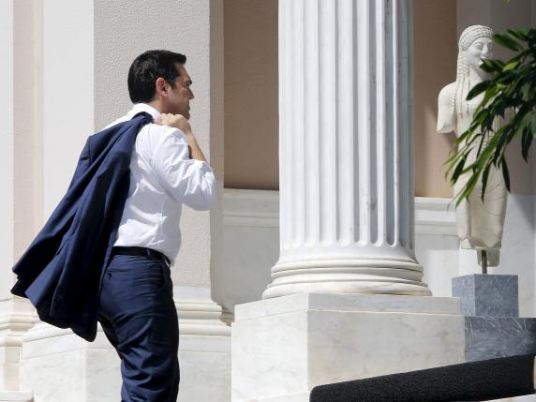
The leftist Syriza party of former Prime Minister Alexis Tsipras will challenge Greece's creditors on unresolved aspects of the nation's bailout but implement unpopular reforms it has already agreed, it said on Sunday.
As opinion polls showed Syriza's lead eroding, its campaign programme reflected unease about the 86 billion euros ($96 billion) rescue package it will have to follow if voted back into power, pledging to battle creditors on some areas still up for discussion if it is re-elected.
Tsipras resigned this month to pave the way for early elections, aiming for a stronger mandate to implement an EU/IMF bailout and rid his party of anti-bailout rebels.
Syriza remains deeply divided over Tsipras's move to accept the bailout.
"Syriza's government will implement these commitments but it is determined to find measures that will offset and minimise their negative impact and negotiate in a tough manner the parts of the agreement which remain open," the party's plan said.
It reiterates promises to fight corruption and tax evasion and reform the state, pledges on which Syriza was first propelled to power in January. Its supporters have criticised it for lack of progress which it blames on painstaking negotiations with its European Union and International Monetary Fund lenders.
The party, which signed the bailout this month to stave off a debt default and the risk of a 'Grexit' from the euro zone, pledged to negotiate what it calls a "grey zone" of labour and pension reforms and privatisations, seeking to win over a big pool of undecided voters and to appease disgruntled members.
Polls suggest Syriza will win the Sept. 20 vote. But its small lead over the conservative New Democracy party suggests Tsipras' gamble in calling early elections could backfire: most Greeks disapprove of his decision to seek a fresh mandate and of his handling of the talks with creditors.
Syriza led the opposition conservative New Democracy party by as much as 15.2 percentage points in May. That gap has shrunk to 1.2-3.0 points in recent opinion polls.
Hours after Tsipras resigned 10 days ago, a group of far-left rebels broke off and formed Popular Unity, a new party which polls suggest will enter parliament. Underscoring his troubles, some members of Syriza's moderate factions have also resigned or said they will not run in the elections.
"We do not regret having fought nor having chosen at the end to avoid catastrophe," Tsipras told a gathering of the party's central committee. "Whoever wants to escape has the right to do so but we are moving forward."
(Reporting by Renee Maltezou; Editing by Ruth Pitchford)



